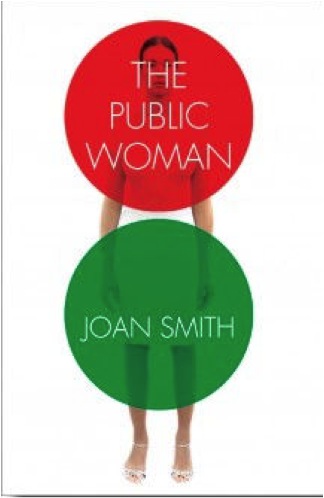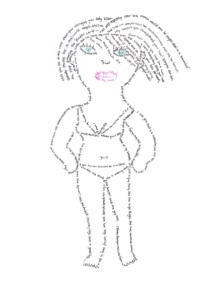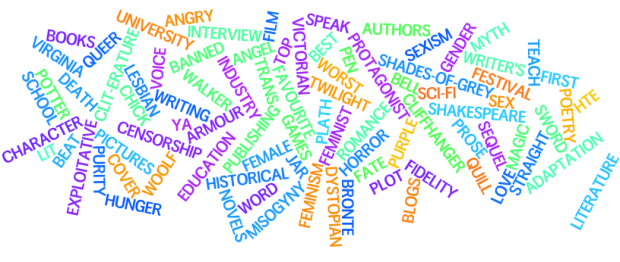By Kita Marie Williams
Spoilers for Brontë’s The Professor, Jane Eyre, Vilette and Shirley.
“The vehemence of emotion, stirred by grief and love within me, was claiming mastery, and struggling for full sway, and asserting a right to predominate: to overcome, to live, rise, and reign at last; yes,—and to speak. (Jane Eyre: 331).”
The above quote comes from Jane Eyre, a book I’ve loved ever since I first read it in my late teens and felt stirred by its zealous and daring heroine. From then on I was fascinated by the Brontë sisters and their incredible literary work, and with the social conditions of the Victorian era. So here is a brief discussion of the themes and characters in Charlotte Brontë’s novels – and a salute to her as a brilliant woman and an outstanding author.
The four novels of Charlotte Brontë are regarded as masterpieces of English literature. The characters she created are powerful, heartfelt, fiery and clever – and their stories are compelling, exciting and profoundly original. Brontë also wrote beautiful and poetic descriptions of nature, deeply explored human experiences, and developed her own strong ideas on religion. Through her novels Charlotte Brontë firmly challenged and criticised the conditions surrounding women, marriage, social class and employment in the 1800s. Writing under the masculine-sounding pseudonym Currer Bell, she received acclaim for her work in spite of criticism for characters and language that were thought to be violent, passionate, coarse, immoral, and depraved.
Charlotte Brontë was born in 1816 in Yorkshire, and lived until 1855. Alongside her surviving brother and sisters – Branwell, Emily and Anne Brontë – she wrote poems and short stories for much of her life, and became a successful author after Jane Eyre was published in 1847.
Charlotte’s heroines each search for their own place in society, struggle to gain control over their own lives, and grapple with reason and passion, religion, moral dilemmas and the power to have both meaningful relationships and professional autonomy.
Her first novel The Professor (published posthumously in 1857) related the story of William Crimsworth, a working man who becomes a teacher in Brussels, where he meets and eventually marries Frances Henri, an Anglo-Swiss student and (later) teacher. Their marriage is highly unusual, as Frances accepts on the condition that she can continue to work as a teacher; allowing her to have professional independence and a satisfying life:
“Well monsieur, I wished merely to say that I should like, of course, to retain my employment of teaching [….] Think of my marrying you to be kept by you, monsieur! I could not do it; how dull my days would be! [….] I like a contemplative life, but I like an active life better. I must act in some way, and act with you.” (The Professor: 167-168.)
Crimsworth’s thoughts on her request are almost revolutionary for the time, as Davis notes in her 2008 work on autonomy in Brontë’s novels; despite some initial misgivings about her role as a wife, he decides to support and assist her plans.
“I knew she was not one who could live quiescent and inactive, or even comparatively inactive. Duties she must have to fulfil, and important duties; work to do, and exciting, absorbing, profitable work. Strong faculties stirred in her frame, and they demanded full nourishment, free exercise. Mine was not the hand to starve or cramp them; no. I delighted in offering them sustenance, and in clearing them wider space for action. ‘You have conceived a plan, Frances,’ said I, ‘and a good plan; execute it. You have my free consent, and wherever and whenever my assistance is wanted, ask and you shall have.’” (The Professor: 185)
This theme was one Brontë returned to again and again in her novels; the struggle for women to lead active, purposeful lives while exploring love, relationships and their own natures. Her second novel Jane Eyre (1847) is a powerful, moving novel detailing the life and development of the protagonist as she fights to find her voice and freely express herself. Jane’s empowerment through achieving an authoritative voice of her own and breaking from various oppressors forms the heart of the novel; though she painfully tries to subdue herself and forcibly keep her low place in society. After confronting her cruel aunt as a child, she feels guilty and remorseful, and tries to silence herself:
“Something of vengeance I had tasted for the first time; as aromatic wine it seemed, on swallowing, warm and racy: its after-flavour, metallic and corroding, gave me a sensation as if I had been poisoned […] I would fain exercise some better faculty than that of fierce speaking.” (Jane Eyre: 52)
However, she overcomes her own dependent place and submission continuously later in her life, as shown through her daring and passionate address to Rochester:
“Do you think, because I am poor, obscure, plain, and little, I am soulless and heartless? You think wrong! – I have as much soul as you – and full as much heart! And if God had gifted me with some beauty and much wealth, I should have made it as hard for you to leave me, as it is now for me to leave you. I am not talking to you now through the medium of custom, conventionalities, nor even of mortal flesh; – it is my spirit that addresses your spirit; just as if both had passed through the grave, and we stood at God’s feet, equal – as we are!” (Jane Eyre: 332)
The novel Shirley (1849) concerns a number of prominent characters, including Shirley Keeldar – an independent woman who has inherited an estate and a business, and Caroline Helstone – a relatively poor young woman who is raised by her uncle. Together these women discuss many topics from business, religion, to gender inequality and misperceptions of women:
“Caroline,” demanded Miss Keeldar abruptly, “don’t you wish you had a profession – a trade?”
“I wish it fifty times a day. As it is, I often wonder what I came into the world for. I long to have something absorbing and compulsory to fill my head and hands and occupy my thoughts.”
[….] “But hard labour and learned professions, they say, make women masculine, coarse, unwomanly.” (Shirley: 171)
Shirley later discusses the nature of women and how they are perceived:
“If men could see us as we really are, they would be a little amazed; but the cleverest, the acutest men are often under an illusion about women. They do not read them in a true light; they misapprehend them, both for good and evil. Their good woman is a queer thing, half doll, half angel; their bad woman almost always a fiend […] If I spoke all I think on this point, if I gave my real opinion of some first-rate female characters in first-rate works, where should I be? Dead under a cairn of avenging stones in half an hour.” (Shirley: 264)
One of the principal themes of Shirley is the limited opportunities available to genteel women – which primarily amounted to marriage, becoming ‘old maids’; who were despised and ridiculed in society, or to be governesses; a position of tiresome work where they were likely to be treated poorly by their employers and live isolated, joyless lives.
Caroline Helstone thinks deeply on the subject of her own prospects:
“I feel there is something wrong somewhere. I believe single women should have more to do – better chances of interesting and profitable occupation than they possess now [….] Look at the numerous families of the girls in this neighbourhood […] the brothers of these girls are every one in business or in professions; they have something to do. Their sisters have no earthly employment but household work and sewing, no earthly pleasure but an unprofitable visiting, and no hope, in all their life to come, of anything better. This stagnant state of things makes them decline in health. They are never well, and their minds and view shrink to wondrous narrowness.” (Shirley: 293)
She thinks further about marriage, which is the only means to gain a respectable position for women – they are left to use methods such as “coquetry and debasing artifice” to ‘catch a husband’, which Caroline believes to be degrading to them, and for which they will also be ridiculed by men and other women:
“The great wish, the sole aim of every one of them is to be married, but the majority will never marry; they will die as they now live. They scheme, they plot, they dress to ensnare husbands. The gentlemen turn them into ridicule; they don’t want them; they hold them very cheap. They say – I have heard them say it with sneering laughs many a time – the matrimonial market is overstocked. Fathers say so likewise, and they are angry with their daughters when they observe their manoeuvres – they order them to stay at home. What do they expect them to do at home? If you ask, they would answer, sew and cook. They expect them to do this, and this only, contentedly, regularly, uncomplainingly, all their lives long, as if they had no germs of faculties for anything else – a doctrine as reasonable to hold as it would be that the fathers have no faculties but for eating what their daughters cook and for wearing what they sew.” (Shirley: 293-294)
Through this and similar speeches made throughout her novel, Charlotte Brontë encouraged female professionalization and independence, and criticised social norms, attitudes, opinions and restrictions of women during the 1800s. Davis explains the views of women working of the time – “while most women of the classes below the aristocracy worked hard within the home, managing the household and raising children, work for pay was generally condemned as making a woman less feminine, distracting her from her more important domestic duties, and demonstrating the failure of her father or husband as a provider.” Many of Brontë’s heroines challenge these ideas by successfully holding professional positions while also marrying and raising children.
Charlotte Brontë’s final completed novel Villette (1853) details the life of Lucy Snowe, a young woman without living family who takes a teaching position in a foreign school and suffers through solitude and anguish in her isolation, before gradually falling in love with Paul Emanuel, a professor of literature. Lucy is a secretive, enigmatic but ambitious character, who actively seeks her own position, furthers her own education, and with the help of others finally achieves and expands her own independence as the director of a pensionnat school. Lucy’s narrative is of an unusual and difficult life as she seeks fulfilling relationships and religious understanding. Villette is considered Charlotte Brontë’s most poignant novel, as it draws deeply from the author’s own experiences in Brussels (experiences which are also explored in The Professor), and contains achingly powerful descriptions of human loneliness. The story ends with ambiguous events as Lucy anticipates Paul Emanuel’s return after three years in the West Indies. Here Brontë describes a storm and Lucy’s fears for his voyage:
“That storm roared frenzied for seven days. It did not cease till the Atlantic was strewn with wrecks: it did not lull till the deeps had gorged their full sustenance. Not till the destroying angel of tempest had achieved his perfect work, would he fold the wings whose waft was thunder – the tremor of whose plumes was storm.
Peace, be still! Oh, a thousand weepers, praying in agony on waiting shores, listened for that voice, but it was not uttered – not uttered till, when the hush came, some could not feel it: till, when the sun returned, his light was night to some!
Here pause: pause at once. There is enough said. Trouble no quiet, kind heart; leave sunny imaginations hope. Let it be theirs to conceive the delight of joy born again fresh out of great terror, the rapture of rescue from peril, the wondrous reprieve from dread, the fruition of return. Let them picture union and a happy succeeding life.” (Villette: 657)
This segment of the novel depicts Lucy’s sorrow and love, and allows us as readers to see her final position as an independent woman who has experienced many hardships but endured, and lived a long full life in spite of pain and misery. Lucy Snowe’s endurance in the face of tragedy is particularly moving as it echoes Charlotte Brontë’s own life following the deaths of her brother and sisters, and her struggle for the strength to overcome her grief.
Charlotte Brontë’s work continues to be celebrated for its originality, beautiful language, complex and compelling protagonists, and its exploration of love, religion, nature and society. In a paper on Charlotte Brontë’s female characters, Abboud explains that Brontë’s heroines disrupted the social norm and were an examination of the author’s own experiences and psyche, as she sought to prove that (in regards to women) “society’s expectations had to be rethought and reworked”.

A painting of the three Brontë sisters by Branwell Brontë; from left to right, Anne, Emily, and Charlotte. In the centre of portrait is the shadowy image of Branwell Brontë, who painted himself out of the picture.
References
Continue reading →





